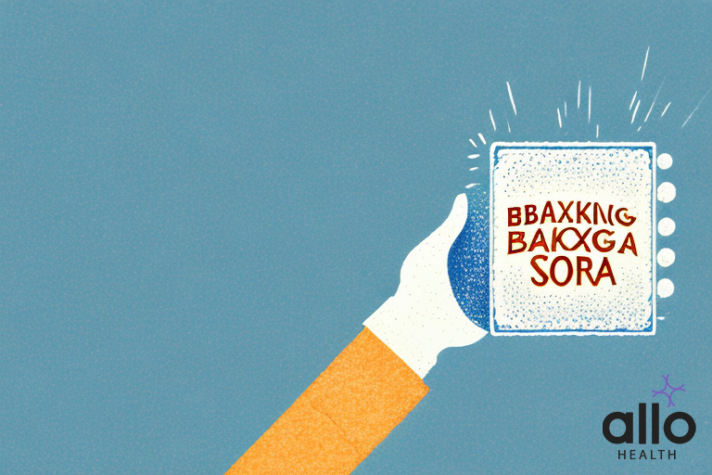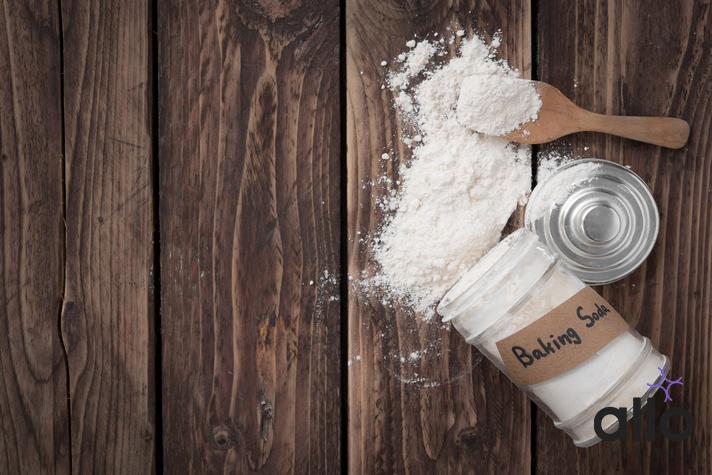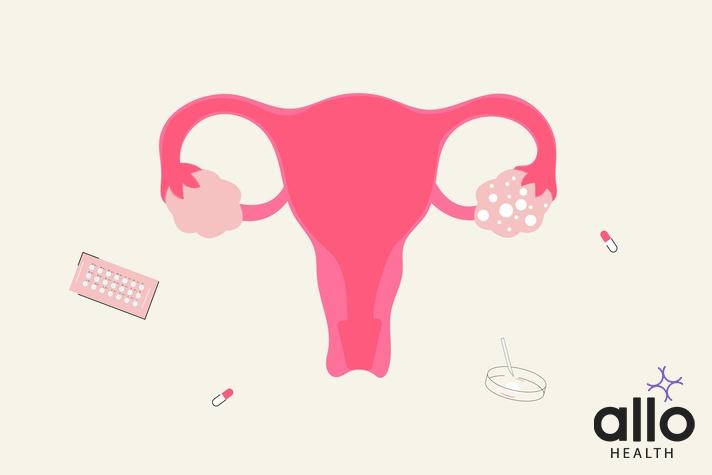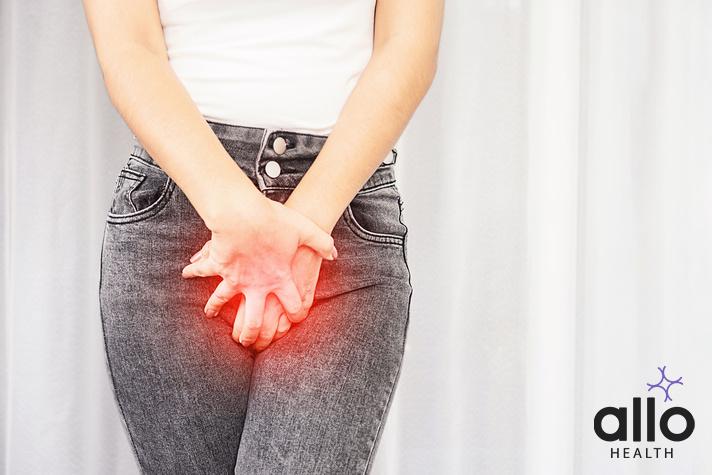Use Of Baking Soda For Vaginal Itching

Allo Health is dedicated to personalized well-being, offering support and trusted information tailored to individual health goals. The platform emphasizes human-generated content, led by a distinguished medical team of experts, including physicians and sexual health specialists. Their commitment to credibility involves rigorous fact-checking, authoritative research, and continuous updates to ensure accurate, up-to-date information. Allo Health's unique approach goes beyond conventional platforms, providing expert-led insights and a continuous commitment to excellence, with user feedback playing a crucial role in shaping the platform's authoritative voice.

Dr. Raj. R holds an undergraduate medical degree from the Philippines, and has a bachelors background in Psychology. His experience working in the field of urology further brought his interest forward in working towards his passion of understanding the science of attraction, intimacy, sex and relationships. A key motto he practices by remains unprejudiced and non-judgemental care.
Why This Was Upated?
Our experts continually monitor the health and wellness space, and we update our articles when new information became available.
Updated on 16 February, 2024
- Article was updated as part of our commitment to diversity, equity, and inclusion.

"The following blog article discusses alternative medicine practices and their potential effects or benefits. However, it is important to note that the information provided is for general educational purposes only and should not be considered as medical advice or a substitute for professional guidance from a qualified healthcare professional. Before considering any alternative medicine practices or treatments, it is recommended to consult with a healthcare professional.
Book consultation
Alternative medicine encompasses a wide range of practices that may not have undergone rigorous scientific evaluation or received widespread acceptance within the medical community. The effectiveness, safety, and appropriateness of alternative medicine practices can vary significantly depending on the individual, their specific medical conditions, and other factors.
It is important to approach alternative medicine practices with caution and skepticism. Some practices may carry potential risks or interact with existing medical treatments. A healthcare professional can provide guidance based on your medical history, evaluate the available evidence, and offer informed advice regarding the potential benefits and risks of alternative medicine practices.
Individuals with specific medical conditions, allergies, or taking medications should exercise particular caution when considering alternative medicine practices. Some practices may have contraindications or adverse effects, and it is essential to discuss these potential concerns with a healthcare professional before pursuing any alternative treatments."
Vaginal itching can be uncomfortable and distressing, often caused by imbalances in pH levels or infections. In such cases, baking soda, with its alkaline properties, is sometimes suggested as a natural remedy. Baking soda’s ability to neutralize acidity may alleviate itching and discomfort. However, it’s crucial to use it cautiously, as excessive use or improper application can disrupt the vagina’s natural balance and exacerbate the issue. Consulting a healthcare professional is advisable before attempting any home remedy for vaginal itching.
The Causes Of Vaginal Itching And How to Identify Them
- Vaginal itching can result from various causes, including infections, irritants, and hormonal changes.
- Common infections leading to itching include yeast infections, bacterial infections, bacterial vaginosis, fungal infections, and sexually transmitted infections (STIs) like trichomoniasis.
- Irritants such as soaps (scented soaps), detergents, perfumes, and certain fabrics can also trigger itching.
- Hormonal changes during pregnancy, menopause, or while taking birth control pills may lead to vaginal dryness and itching.
- Identifying the cause often involves noting accompanying symptoms like discharge, odor, pain during urination or intercourse, and changes in vaginal pH.
- A doctor may perform tests such as a pelvic exam, pH testing, or microscopic examination of vaginal discharge to diagnose the underlying cause.
- Treatment varies based on the cause and may include antifungal medications and other antifungal products, antibiotics, topical creams, or hormone therapy.
- Preventive measures include practicing good hygiene, avoiding irritants, wearing breathable underwear, and practicing safe sex.
Understanding the Benefits of Baking Soda for Vaginal Itching Relief

- Baking soda, or sodium bicarbonate, is a natural remedy that can provide relief from vaginal itching (activity of sodium bicarbonate on vaginal infections, or urinary tract infections, or other superficial infections).
- Its alkaline properties help balance pH levels in the vaginal area (having vaginal wash for maintaining vaginal hygiene, i.e. healthy vagina), reducing irritation and discomfort. Wearing clean clothes, and fabric softeners also helps this condition.
- Baking soda has anti-inflammatory properties that can soothe itching and redness.
- A baking soda bath (salt baths, bath soaps, hot baths, lukewarm baths, soda baths) or douche can be prepared by mixing 1-2 tablespoons of baking soda in warm water.
- This solution can be used externally to cleanse the vaginal area or as a bath for overall relief.
- However, it’s important to use baking soda in moderation as excessive use may disrupt the natural pH balance of the vagina.
- It’s advisable to consult with a healthcare professional before using baking soda for vaginal itching, especially if you have any underlying medical conditions or concerns.
- Overall, baking soda can be an effective and affordable option for temporary relief from vaginal itching.
How to Prepare a Baking Soda Solution for Vaginal Itching Relief
- Ingredients: You’ll need baking soda and clean water.
- Measurements: Mix 1-2 tablespoons of baking soda with 4 cups of warm water.
- Mixing: Stir until the baking soda is completely dissolved.
- Preparation: Use a clean container to prepare the solution.
- Application: Either use a clean cloth soaked in the solution or pour it into a clean bathtub for a sitz bath.
- Instructions for cloth application: Gently apply the soaked cloth to the affected area for 10-15 minutes.
- Instructions for sitz bath: Sit in the bathtub filled with the solution for about 15-20 minutes.
- Frequency: Use the solution 2-3 times a day or as needed for relief.
- Caution: Avoid using scented products or harsh soaps in the vaginal area, as they may exacerbate itching.
- Consultation: If itching persists or worsens, consult a healthcare professional for further evaluation and treatment.
The Correct Way to Apply Baking Soda for Vaginal Itching Relief

- Cleanse: Start by washing your hands and the vaginal area with mild soap and warm water.
- Dilute: Mix 1 tablespoon of baking soda with 1 cup of warm water to create a solution.
- Soak: Soak a clean cloth or cotton ball in the solution.
- Apply: Gently apply the soaked cloth or cotton ball to the affected area.
- Pat Dry: Let the solution sit for a few minutes, then gently pat the area dry with a clean towel.
- Repeat as Needed: You can repeat this process 2-3 times a day as needed for relief.
- Avoid Direct Application: Refrain from applying undiluted baking soda directly to the skin or patches of skin (skin conditions), as it may irritate.
- Consult a Doctor: If symptoms persist or worsen, consult a healthcare professional for proper diagnosis and treatment.
Tips for Using Baking Soda Safely and Effectively on Sensitive Skin
- Patch Test: Before using baking soda on sensitive skin (having skin irritations), conduct a patch test to check for any adverse reactions.
- Dilution: Always dilute baking soda with cool water or a gentle cleanser to reduce its abrasive nature.
- Gentle Application: Apply the diluted baking soda mixture to the skin using gentle, circular motions to avoid irritation.
- Limit Frequency: Use baking soda treatments sparingly, limiting application to once or twice a week to prevent overexfoliation.
- Moisturize: Follow up with a moisturizer to replenish lost moisture and prevent dryness after using baking soda.
- Avoid Sensitive Areas: Avoid using baking soda on sensitive areas such as the eyes, lips, and any broken or irritated skin.
- Consult a Dermatologist: If you have extremely sensitive skin or experience persistent irritation, consult a dermatologist before continuing use.
Other Natural Remedies for Vaginal Itching Relief You Can Try at Home

- Yogurt: Applying plain, unsweetened yogurt containing live cultures directly to the affected area can help rebalance vaginal pH and reduce itching.
- Coconut oil: Its anti-inflammatory and antimicrobial properties can soothe irritation and moisturize the skin when applied topically.
- Tea tree oil: Diluted tea tree oil can be used as a natural antifungal (antifungal properties) and antibacterial agent to alleviate itching, but it should be used cautiously and never applied directly to the skin without dilution.
- Apple cider vinegar: Adding a cup of apple cider vinegar to a warm bath can help restore pH balance and relieve itching.
- Cold compress: Applying a cold compress or ice pack wrapped in a cloth to the vaginal area can numb the nerves and reduce itching temporarily.
- Witch hazel: Its astringent properties can help soothe itching and irritation when applied topically with a cotton ball.
- Oatmeal baths: Taking a warm bath (baths for babies) with colloidal oatmeal can help calm inflamed skin and alleviate itching.
When to See a Doctor About Persistent Vaginal Itching and Discomfort
- Persistent vaginal itching and discomfort lasting more than a few days warrants medical attention.
- Consult a doctor if over-the-counter treatments fail to alleviate symptoms.
- Presence of unusual discharge, foul odor, or rash indicates a need for evaluation.
- Symptoms accompanied by pain during intercourse or urination require prompt medical assessment.
- A history of recurring yeast infections or sexually transmitted infections necessitates medical consultation.
- Persistent itching may indicate underlying conditions such as yeast infections, bacterial vaginosis, or allergic reactions.
- Early diagnosis and treatment can prevent complications and promote vaginal health.
Understanding the Potential Risks and Side Effects of Using Baking Soda for Vaginal Itching Relief
- Baking soda, when used for vaginal itching relief, is often diluted in fresh water (lukewarm water or hot water)and applied as a wash or bath soak (using bath salts, bubble baths, or colloidal oatmeal baths).
- Potential risks include altering the natural pH balance of the vagina, leading to irritation or infection.
- Excessive use may disrupt the delicate balance of bacteria in the vagina, increasing the risk of bacterial or yeast infections.
- Some individuals may experience allergic reactions or increased sensitivity to baking soda.
- Overuse of baking soda may cause dryness and irritation of the vaginal tissues.
- It’s important to consult a healthcare provider before using baking soda or any home remedy for vaginal itching, especially if you have underlying health conditions or are pregnant.
- Alternative treatments, such as over-the-counter antifungal creams or prescribed medications, may be more effective and safer for relieving vaginal itching.
- Proper hygiene practices and wearing breathable cotton underwear can also help prevent vaginal itching.
Most Asked Questions
-
Is it safe to use baking soda for vaginal itching?
While some women find relief using baking soda, it can disrupt vaginal pH and bacteria balance, leading to irritation or infection. Consult a healthcare provider before use.
-
How should I use baking soda for vaginal itching?
Mix a small amount of baking soda in water for a gentle wash or detox bath soak. Ensure it's properly diluted to avoid irritation.
-
Can baking soda worsen vaginal itching?
Yes, overuse or improper dilution may exacerbate itching by disrupting the vaginal environment. Monitor for any adverse reactions and discontinue use if irritation occurs.
-
Are there any side effects of using baking soda?
Potential side effects include dryness, irritation, or allergic reactions. Always perform a patch test and consult a healthcare provider if concerns arise.
-
Are there safer alternatives to baking soda for vaginal itching?
Yes, over-the-counter antifungal creams, prescribed medications, or natural remedies like tea tree oil or yogurt may offer relief without disrupting vaginal pH. Consult a healthcare provider for personalized recommendations.






































